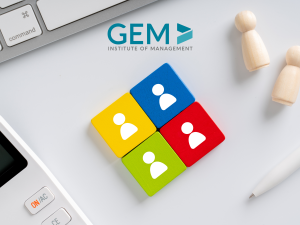The first few months in any role are critical times when most of us feel some pressure to prove our worth. Part of it is that we want to impress a new boss or bring about certain achievements. However, in addition to these initial successes, it is also important to build a foundation of strong relationships with new colleagues. Having good relationships at work is crucial to success. Better relationships lead to better teamwork and will make you happier, more engaged, and more productive. They are also the foundation of our success.
But how can we do this properly, especially when joining a new group where everyone already has a strong bond?
Here are five key points to remember that can help you establish a good rapport with your new co-worker:
1. Actively help people in your power without waiting for people to ask
As new to the team, your colleagues will be interested in what you can bring to the team’s distant goals and the projects they’re working on. That most likely has something to do with the jobs you were assigned to early on; Remember that new employees are usually not overwhelmed with work.
If possible, use your knowledge and experience on group tasks and find ways to help your colleagues. Make sure you don’t spread yourself out, do whatever you want, and never try to take on a job you’re not comfortable with, but if there’s an opportunity to help, be open to it.
2. Take the time to build relationships with everyone, not just your boss
Maybe you tend to focus all of your time and efforts on impressing your superiors and often give less importance to junior colleagues or tasks that you consider less important. These things are very important to someone, so don’t dismiss them too quickly. It can be tough to take on a new role, when there’s pressure to impress and make an impact, but remember that reputation should be built at all levels, not just with your boss or with the team. management team.
By building yourself up to be a trustworthy, helpful, and respectful member of everyone on the team, including subordinates as well as bosses and colleagues, you’ll go a long way in building a more professional relationship.
3. Do the job and keep a close eye on everyone
There’s nothing worse than not keeping your promises or being consistently late. A quick way to damage your reputation and damage relationships is by not keeping up with work or not responding to emails asking for information and help.
If you find that you’re short on time or out of control to keep track of things, it’s important to openly and honestly share that with your co-workers. It is better to honestly warn someone than to fail without a proper explanation.
4. Prove yourself in meetings
Professional relationships are built on respect, and there’s no better way to earn the respect of your co-workers than by proving you’re an engaged and valued member of the team. And the best place to demonstrate this is when you attend meetings. Be prepared, give your opinion, support the opinions of others, be proactive and willing to participate in activities.
5. Be positive and avoid gossip
An important part of building healthy relationships is keeping a positive attitude towards your new colleagues. There are bound to be political issues of varying degrees or rumours – a fact when people work together in an office. However, as a new face in the group, it is important that you stay away from activities like this.
In a large team working together, relationships are often complicated and can only take their toll if you get too involved in gossip or politics. Don’t risk disparaging someone or engaging in a joke with others to quickly damage your reputation. Before you know it, gossip will be pouring in on you and it will be difficult to regain a tarnished reputation.
Hard work, honesty and a positive professional demeanor are traits that will go a long way in your career and are the factors that will help you make an impact in any new role. Respect your colleagues, prove your worth by dedicating time, experience and expertise, you can quickly build quality professional relationships, not only getting you through the early hours of your career. your new job, but also your long-term future with the organization.
Source: GEM Global translated and compiled from Michael Page





